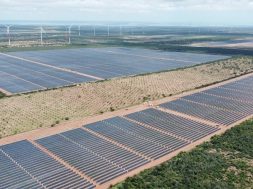
Solar Energy Corporation of India Launches 2,000 MWh Energy Storage Tender
The Solar Energy Corporation of India (SECI) has said that it will launch a tender for 2,000MWh of standalone energy storage systems (ESS).
SECI said late last week that it intends to procure power as aggregate capacity from systems which will be set up on a build-own-operate model. The state-owned corporation will enter into a 25-year power purchase agreement with the winning bidder, or bidders.
SECI, which has tendered for several hundred megawatts and megawatt-hours of battery storage previously only in combination with solar PV, said that a request for selection (RFS) document is likely to be made available by the end of August with further details to be given on its own website and an electronic tender website portal here.
The March inauguration of a 150kWh / 528KWh lithium-ion battery energy storage system in Rani Bagh, Delhi, described as “India’s first grid-connected community energy storage system”.
The tender appeared to be welcomed by various commentators on social media, including Tim Buckley, director of energy finance studies for the Australia and South Asia regions at the Institute for Energy Economics and Financial Analysis (IEEFA), who tweeted on Saturday that it was “brilliant to see”. Buckley added that the 25-year contract would “minimise cost of capital & hence drive down the cost of grid reliability and stability”.
India is targeting an installed capacity of 175GW of renewable energy excluding large hydro by 2022 and 450GW by 2030, making the need for batteries and other energy storage to help integrate the growth in capacity urgent.
As of the end of June, there was about 96.95GW installed, according to government figures. There is also a recognised need to stimulate demand for energy storage to get this growth started, something that was referred to by Power and New Renewable Energy minister RK Singh at a recent event where he said the government of India will also tender for 4,000MWh of storage.
Added to a 1,000MWh tender launched by state-owned power generation company NTPC which is already underway, it appears that there have rapidly been 7,000MWh in total of energy storage tenders for the energy storage industry in India to participate in announced in the past couple of months alone. India’s first 10MW large-scale battery storage demonstration project was inaugurated in Delhi during 2019.
Also of note has been the publication of draft ancillary services market regulations by the country’s Central Electricity Regulatory Commission in May, which would create market opportunities for frequency regulation to help maintain the reliable operation of electricity grids as the amount of variable renewable energy on them increases.
Meanwhile, another key priority for the clean energy industry in India is boosting the domestic manufacturing of key technologies and materials. The government has designated advanced battery cells and solar technologies as “Champion Sectors” that it will seek to support in light of these aims.


















